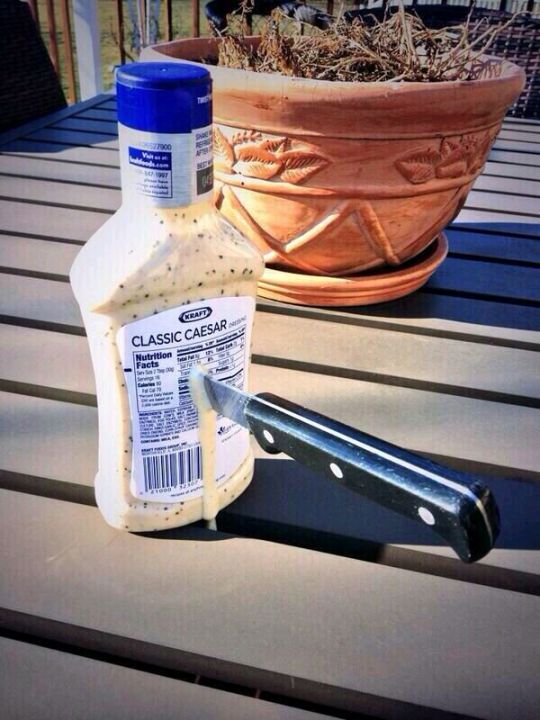Text
OP, you are not the only one. I have about 2000 liberal arts faculty over here, crying into my lap about this exact thing. I don't even want to _imagine_ what the Environment and Sustainability college meetings look like this year.
being anti ai is making me feel like in going insane. "you asked for thoughts about your characters backstory and i put it into chat gpt for ideas". studies have proven its making people dumber. "i asked ai to generate this meal plan". its causing water shortages where its data centers are built. "ill generate some pictures for the dnd campaign". its spreading misinformation. "meta, generate an image of this guy doing something stupid". its trained off stolen images, writing, video, audio. "i was talking with my snapchat ai-" theres no way to verify what its doing with the information it collects. "youtube is impletmenting ai based age verification". my work has an entire graphics media department and has still put ai generated motivational posters up everywhere. ai playlists. ai facial verification. google ai microsoft ai meta ai snapchat ai. everyone treats it as a novelty. every treats it as a mandatory part of life. am i the only one who sees it? am i paranoid? am i going insane? jesus fucking christ. if i have to hear one more "well at least-" "but it does-" "but you can-" im about to lose it. i shouldnt have to jump through hoops to avoid the evil machine. have you no principles? no goddamn spine? am i the weird one here?
#academia fanning#it's canary hour all over the place#please stop giving the actual-facts cult your biometric data#for the love of fuck
78K notes
·
View notes
Text
22K notes
·
View notes
Photo

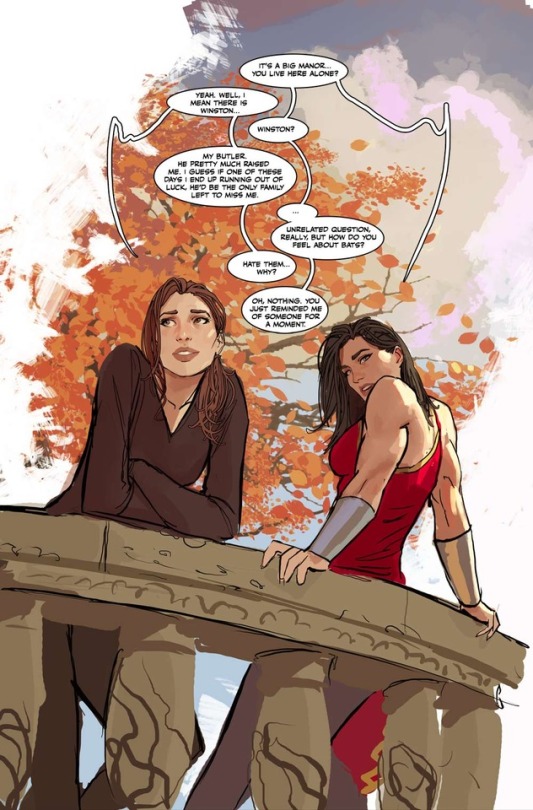
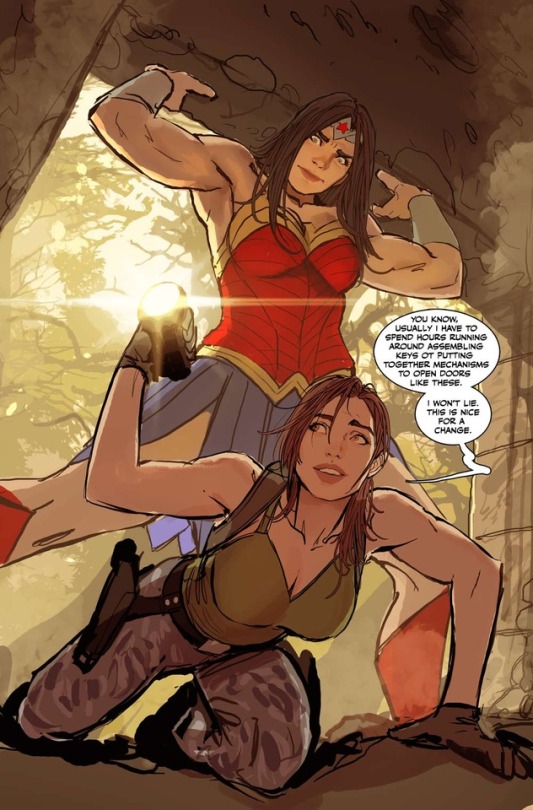



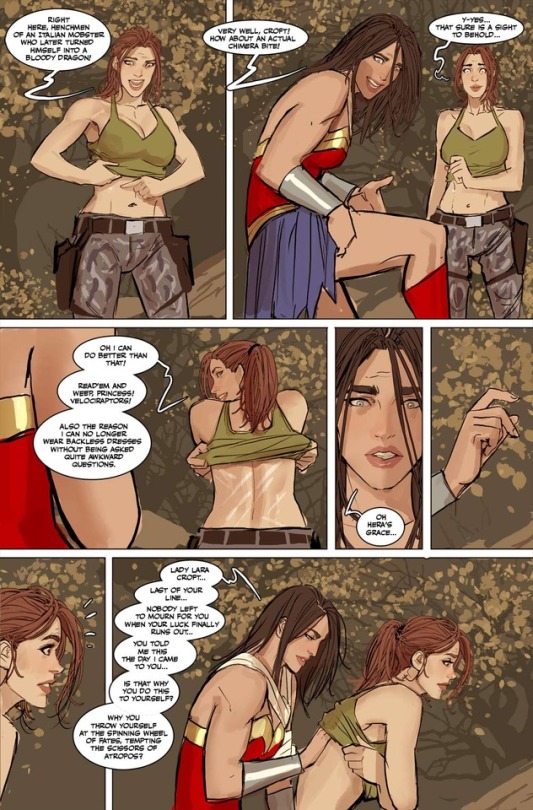



decided to put these in a bit of a chronological order as i can’t help but form a story behind the scenes. it’s a storyteller’s habit. and yeah i do have an idea i would genuinely like to explore with gail simone as a crossover comic.
i don’t want to be the writer for this. but at the same time i always found diving into these things and exploring the character chemistry was the best way to get an artistic feeling for it.
this is also how i usually develop my own stories.
anyhow, while many think this is me drawing some shipping, in fact this a proof of concept for an adventure story featuring lara and diana. Gail simone at some point asked if they would kiss and i gave it some genuine thought. i am a character first kind of a writer, myself, so i contemplated this. then i decided, yes, probably.
after all, romantic subplots have been the bread and butter of adventure writing since its inception and i always liked that aspect of adventure stories.
i hope this puts some things in context from my end XD
and while there will probably be a few more of these, there will be no nsfw pics. after all, camera pans away from indiana jones in those moments as well XD
okay… there may be a chance of a kiss… but that’s about it. (edit, i added the rest of them here along with the antagonist)
73K notes
·
View notes
Text
truly nothing funnier than having an archive of when you first started getting into a media that has since consumed your entire life
#what was it with Tennis Sanctuary?#we weren't going to write crossovers or we weren't going to write crack-fic#hahahahahah whoops
34K notes
·
View notes
Text
Apropos to the moment quotes:
“'You took an oath to uphold the law and defend the citizens without fear or favour,' said Vimes. 'And to protect the innocent. That’s all they put in. Maybe they thought those were the important things. Nothing in there about orders, even from me. You’re an officer of the law, not a soldier of the government.'”
"He didn’t look around, and watch and learn, and then say, ‘This is how people are, how do we deal with it?’ No, he sat and thought: ‘This is how the people ought to be, how do we change them?’"
"No. The protest was over the price of bread, said Vime’s inner voice. The riot was what happens when you have panicking people trapped between idiots on horseback and other idiots shouting ‘yeah, right!’ and trying to push forward, and the whole thing in the charge of a fool advised by a maniac with a steel rule."
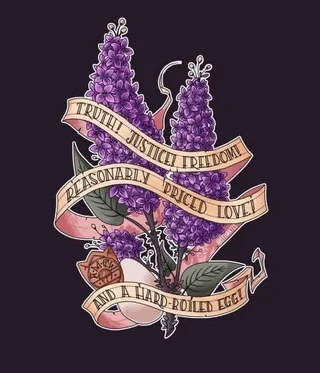
GNU Sir Terry. Thank you so much for sharing everything with us.
2K notes
·
View notes
Text
Having just spent a year and change hauling a whole site worth of material out of this abomination, where it was buried four layers down the extremely hard to find menu... THIS. Go on, try to find even a top level item like Grants. Have fun. I'll be here with the booze when you get back.

So this was inspired by a discussion I had with a friend yesterday.
It started with me mentioning offhand that once upon a time, I had considered arguing with my university that they should publicly post their class schedules because technically, anyone is allowed to sit in on a class, but that's practically blocked off from the community by virtue of them not having access to when and where the courses are happening.
He immediately pulled up a public-facing version of the course scheduling system that I never knew existed and said something like "If people really wanted that information, they could find it."
Information accessibility is a big deal to me, so then I started to explain that "not knowing what you don't know" and the vast amount of info people have to sift through are real barriers to people obtaining information and also that "This doesn't exist," and "I can't find it," look exactly the same, so if people can't find something, they will eventually give up because of diminishing returns on the effort of looking for something that may not exist.
But he just kept saying different versions of "Well if people REALLY wanted it, they'd go find it," which really surprised me because he's liberal, very intelligent and very into philosophy, but he couldn't seem to see the logical end result of a philosophy about information access that basically comes down to "pull yourself up by the bootstraps (and if you can't, you didn't deserve to succeed)."
So he went on this rant about how the general public should simply know almost all information is out there and put in the effort to find it (without any outreach or effort to engage the public on this), and I said,
"You will be perpetually angry at how unmotivated and badly informed the public is with your current attitude. And it will never improve without people who do not have your attitude. This is the reality you are doomed to because of this perspective. It's neither good nor bad. I'm not faulting you for it, but no matter what you have to say to justify your perspective, this will always be the result."
Because any "BUT THE WORLD WOULD BE BETTER IF PEOPLE WOULD JUST ____" philosophy is USELESS if you expect "people" (i.e. the public at large) to spontaneously start or stop doing something without some kind of outside effort - an outreach campaign, an educational movement, an incentive, etc.
If you're falling into those kind of thought patterns, it's not going to be productive for you or society because you're always going to be mad, and you're never going to do anything to change the things that make you mad because you're too caught up in your own feelings of indignance and frustration.
12K notes
·
View notes
Note
And really, don’t take these too seriously. They were all commercial literature, or at least trying to be (bless Melville’s poor heart, see also his complete inability to not cram the encyclopedia, the Bible, a political screed, and at least ten naturalists into every chapter). Kick back and relax! Let them entertain you! In some cases, wonder what they were smoking!
Also, it always helps to look for the raunchy jokes. Moby is so, so full of dick jokes, my goodness.
I see that you read books like Les Miserables, Moby Dick, and The Count of Monte Cristo and am curious to know if you have any advice for reading long classic texts with slower pacing and older language? There are many books like these that I’d love to read since I’ve no doubt they became classics for a reason, but their length and density (especially when combined with my admittedly short attention span) feel like an intimidating barrier. Do you have any particular methods you use when reading these kinds of books?
This is an excellent question, and as there is no one right answer, I invite others to weigh in.
In some ways I'm the wrong person to ask, because to me it came naturally. I was a big reader as a child, and since I was born the year of the moon landing, when I reached adolescence, books were still largely the only game in town when it came to narrative. I mean, there were movies, which you had to go out and see in theaters unless you were good enough at handling your unnecessarily complicated VCR system to tape them from TV. And of course there was TV, but...have you ever watched 80s TV? It was...yes, I'm going to say 100% awful. I mean find me a 1980s TV show you would gladly watch again today. Computer games were (depending on whether you lived through this era) either laughably or adorably simple--and many of the ones I played the most, which were interactive fiction games, worked more or less like novels: you read a block of text, you made a decision, you got another block of text.
But that world is gone! So here are some suggestions for reading long nineteenth century novels in the 21st century.
This got long. The TL:dr here is: Unlock the sensory and imaginative pleasures available from the Very Long Book, and they will compensate for the frustration occasioned by unfamiliar vocabulary and complicated sentence structure.
Find an edition of the book that is a (sensory) pleasure to hold and to read.
If you're not used to reading physical books, give one a try. Purchase an edition of one of these classics from your local bookstore in an edition which feels good to handle, where the layout is inviting, and where the print is easy on the eyes (literally and figuratively). Don't just buy the cheapest print edition available. A well-made book will make itself a pleasure to read; a cheap book will shove all the text into as small a space as possible, and that alone can make the book something that feels bad to even open and look at. If money is an issue for you, find a local used bookstore and browse. You'll get more book for your money that way, and there's more chance of your finding an edition that predates the general enshittification caused by the emergence of Amazon.
If you have a good e-reader that doesn't give you screen fatigue after 30 minutes, and which feels good to hold, that's also a good option. You can customize the print size, and on my Kindle, anyway, I can look up unfamiliar vocabulary, which is very helpful.
2. You control the density!
You can't do anything about how long these books are. What you can do is spread them out over time so that they become less dense. And in fact this is how many of these novels were intended to be enjoyed.
Oscar Wilde, Charles Dickens, Wilkie Collins, Alexandre Dumas, and many other 19th century novelists wrote for serialization in periodicals. Critical editions--books prepared for classroom use, which include things like introductions and footnotes explaining now-obscure references--will often indicate where one serial instalment left off and the next began. I think this may be one reason why Dracula Daily has been so successful (even though Dracula itself was not serialized). Yes, it helps that they've straightened out the timeline; but that rhythm of getting one snippet of the story, then having to wait with increasingly bated breath for the next one, helps maintain engagement and suspense; and that gets people through those long, complicated sentences and the unfamiliar vocabulary.
Long ago some friends of mine organized a project called "Dickens By Inches" where they read Dickens's novels according to the schedule of the original serialization. This is a little too hard-core for the average reader; but my point is that these books were designed to be consumed in small chunks over a long period of time with rests in between, and you should feel free to read them that way.
So, one suggestion is that you figure out what's a manageable chunk for your to read at one sitting--it could be a chapter, a section of a chapter, a single page, a single paragraph--and work your way through the book one chunk at a time, resting between chunks. You will need a bookmark (if you're using a physical book), and bookmarks can become part of the sensory pleasure of reading (there are so many beautiful bookmarks out there!).
[I'm just noting here that I'm also aware of the lending library system and the three volume novel; I just don't think that system is worth replicating on your own time. No letters, please.]
People also used to read these novels out loud at home to their families and friends. This is something we're replicating by reading these novels out loud to PJ on long car trips. Reading out loud, of course, takes much longer; but as the designated reader, I have to say, it's a lot of fun and you pay a lot closer attention to the text.
3. Learn how to immerse yourself.
Again, this came naturally to me but I am antediluvian. One of the main pleasures these long novels offer is immersion--entering the world, spending time there, and returning refreshed to this world here. I understand you can now achieve immersion through gaming, bingewatching, and doomscrolling; but I think these novels offer an experience of immersion that I, at any rate, find more restorative--partly because it combines mental stimulation with physical relaxation. Restorative solitude as opposed to digitally-enabled loneliness. It's magical.
Tips for a successful immersion experience:
Unitask. Whatever you own that beeps or does push notifications, silence it or put it away. Put on music if silence makes you antsy (it helps if it doesn't have words).
If you have time and privacy to read at home, make yourself a little sensory nook. I mean this can be overdone--as with everything else we now have Instagram book nooks to make us feel inadequate--but honestly if you have a comfortable chair, a blanket you like, good reading light, and a satisfying beverage at hand, that's a little piece of heaven right there, and if your book is also pleasant to hold and look at, then just open it up and dive in and if you fall asleep great, just go back to the last thing you remember reading. You can be on the field of Waterloo in your imagination, but your body is still chilling and not being assailed by light and sound.
Be patient and trust the author. I would say one of the main barriers to modern readers with the 19th century novel is that they are often very slow starters. For the first 100-200 pages, they're laying the foundation, and this can become tedious. BUT. The payoff will come later, as we get deeper into the world and the characters and their relationships get more and more entangled. Done well, the crisis and resolution phases of these novels are exciting and intensely satisfying in ways that faster fiction isn't. (Not knocking the faster fiction; but we all know what pleaures faster fiction offers.) So instead of going oh my God WHY when an author spends three paragraphs introducing a character by describing not only their temperament, family, and personal history, but every feature of their physical appearance and exactly what they're wearing, read it like a detective: this is all going to become important later on, we just don't know exactly how or why yet.
4. Don't put pressure on yourself to find Deep Meaning at every turn.
Read for pleasure. Cannot stress this enough. You will not get through one of these novels if you think of it as homework. If searching for Deep Meaning increases your pleasure, then have at it. If you just want to enjoy the story for plot and characterization, fantastic; those are two things 19th century novels are GREAT at and they are highly enjoyable.
Anyway, that is enough out of me. I invite others to offer their suggestions!
316 notes
·
View notes
Text
I still sometimes wind up cringing into a little pill bug when I think about how close this came to happening to me before my then-prospective-new-partner called from the other side of the continent to say "whatever you're doing, stop it right now". We had met _twice_ and it yanked her attention that hard.
PSA: the sternocleidomastoids are little fuckers at the best of times. Don't let anyone who blithely fucks around with them touch you.
The acupuncturist convinced me to try cupping today using a silicone cup, and dear god, the pain relief in my neck and shoulder was so immediate it left me lightheaded. I don't think I've been pain-free in that shoulder for over twenty years.
It does rather look like I got into a fight with a giant squid, though.
3K notes
·
View notes
Photo
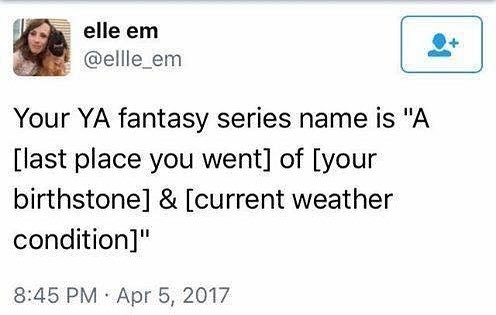
Bank of Sapphire Cold?
113K notes
·
View notes
Text
Tumblr isn't giving us back the boops for ides of march so I will do it myself.
Get your boops everyone!!!



I just put these together real quick feel free to use them.
49K notes
·
View notes
Text
lord take all of my pain and sufferig and give it to elon musk
74K notes
·
View notes
Text
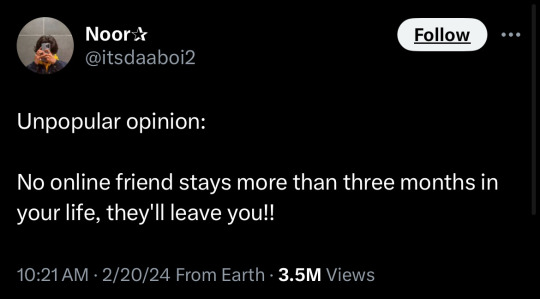
what a way to announce your skills issue anyway how long is y'all's longest internet friendship, mine is 14 years
47K notes
·
View notes
Text
🍄🌿🍄🌱🍄🌿🍄🌱🍄🌿🍄🌱🍄🌿🍄
You! Have been visited by the gnome of executive function! Reblog to send them along to make sure they visit the next person in need!
🍄🌿🍄🌱🍄🌿🍄🌱🍄🌿🍄🌱🍄🌿🍄
#a few gnomes of “blood glucose actually reaching the brain” would not be amiss either#fucking brainfog#fucking radiation#whose idea was cancer I just want a word
32K notes
·
View notes
Text
Accurate. Also, the likes of Mardi and Clarel and probably Pierre would still be just the same, but the rest of the novels would be gay romance with diversions into political lectures.
So, you know, not all that different, either.
Hot take maybe but If Melville was alive today he'd set Moby Dick on a oil tanker instead of a whaling ship and it would be a beautiful ode to the world we are destroying just like Moby Dick is a ode to the animal they're killing. The deep black oil from the depths and the white whale. Ahab who lost a leg to a terribly unsafe industry but is still spreading fossil fuel propaganda like a religion. You get me
His self insert would still be married to Queequeeg except now theres a whole section about getting to know Queequegs culture and a beautiful marriage ceremony with a presbiterian pastor and Maori elders giving their blessing and three whole chapters are about the seafood buffet and open bar. What were we talking about
7K notes
·
View notes
Text
"There is a secret level to the drinking with white people game ... and it's called the SCA."
12K notes
·
View notes

